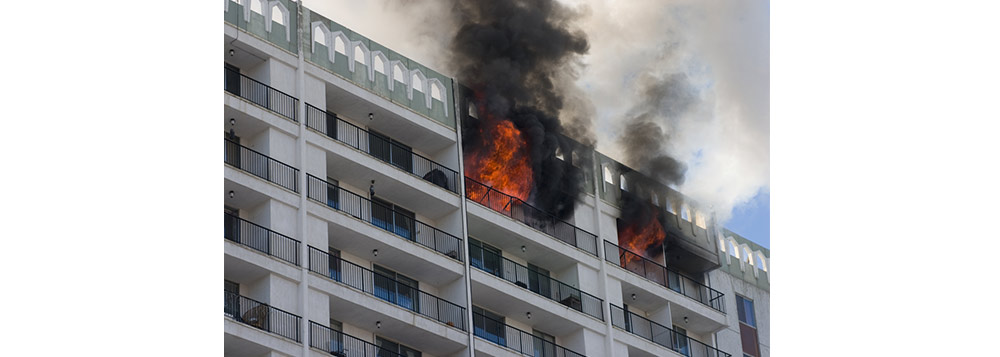Preventing fires is a job for everyone, but condo boards and property managers have a particular responsibility. Your fire prevention efforts will help keep residents and tenants safe from fire – everyone’s #1 priority. In turn, these steps could help lower your condo’s master policy insurance rates.
How to keep fires at bay? It’s not rocket science, but in Hawaii it can be a little more challenging due to the advanced age of many buildings. As the first state to enact a condominium law, Hawaii is home to many condos built during the boom of the 1960s and 70s.
Following are tips for association boards and property managers, however all condo residents have a self interest in knowing what risk factors to look out for.
Fire prevention steps:
- Enforce no smoking and housekeeping rules.
- Educate occupants on the dangers of unattended cooking, barbecuing on balconies, using candles, electrical overloads, etc.
- Regularly check and repair self-closing unit doors, exit stairway doors, and fire cutoff doors.
- Ensure trash chute doors are in good condition and have operable fusible links. Deposit doors on all floors should be self-closing and latching. In the event of a trash fire, you want to prevent fire, smoke and superheated air from infiltrating the building.
- Keep discharge doors leading to the outside unobstructed at all times; do not allow vehicles or dumpsters to block them.
- Inspect all fire protections systems on a regular basis, including sprinkler systems, voice communication systems, fire extinguishers and wet-standpipes.
- Ensure staff is trained on the use of all fire-protection systems.
- Ensure the proper maintenance of electrical systems.
- Consider periodic high-hazard inspections of individual units. Boards have the authority to conduct interior assessments.
- Have a process for documenting the results of self-inspections and for tracking what remedial actions are taken and when.
High-rise buildings built today are safety than ever thanks to National Fire Protection Association (NFPA) codes requiring the installation of automatic sprinklers and the use of enhanced fire alarm systems and construction techniques. Nevertheless, property managers and condo boards share a common set of responsibilities regardless of the building’s age: Ensure all fire protection systems are working properly, staff are well trained, and residents and tenants are educated on how to prevent and respond to fires.

